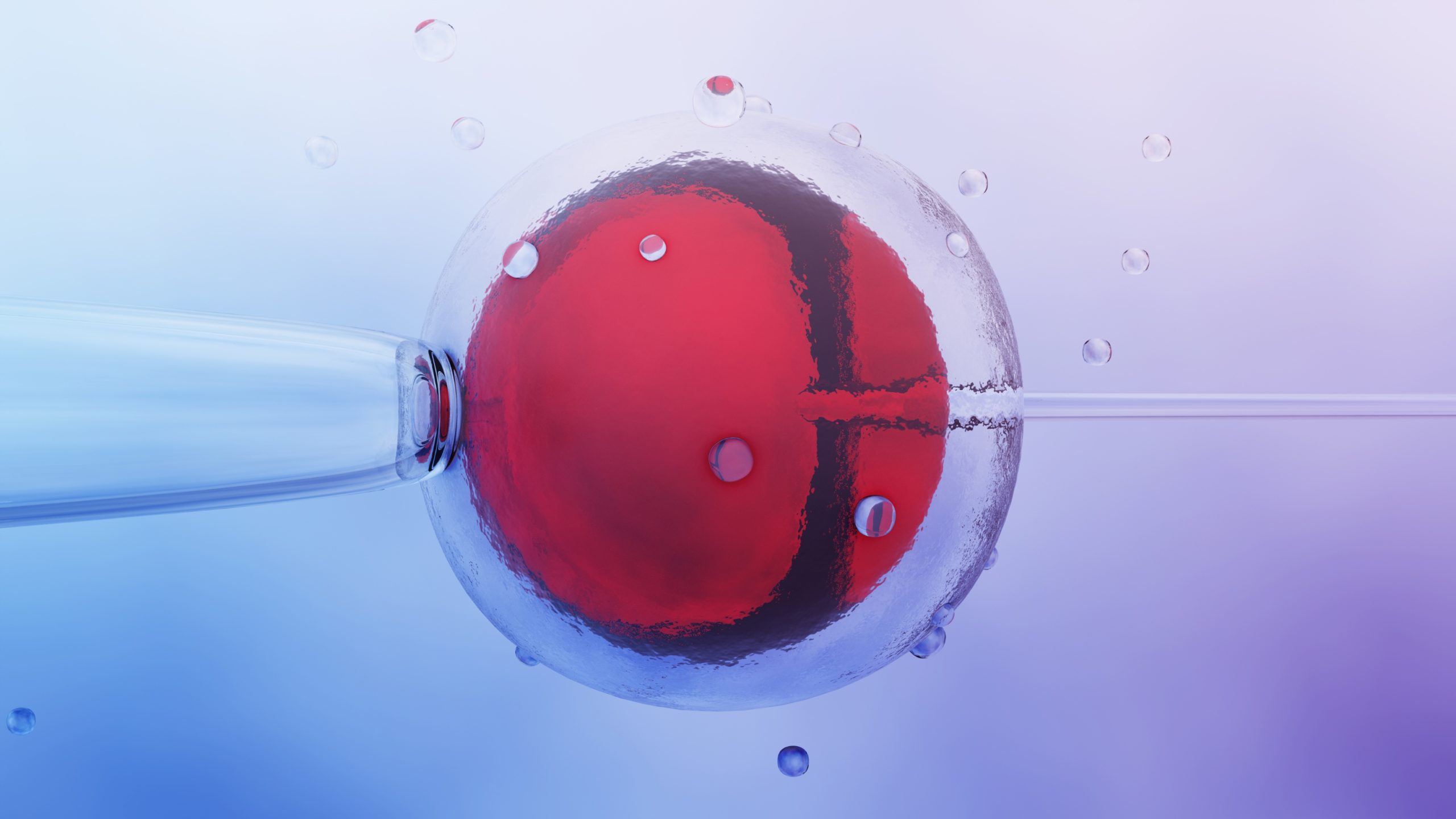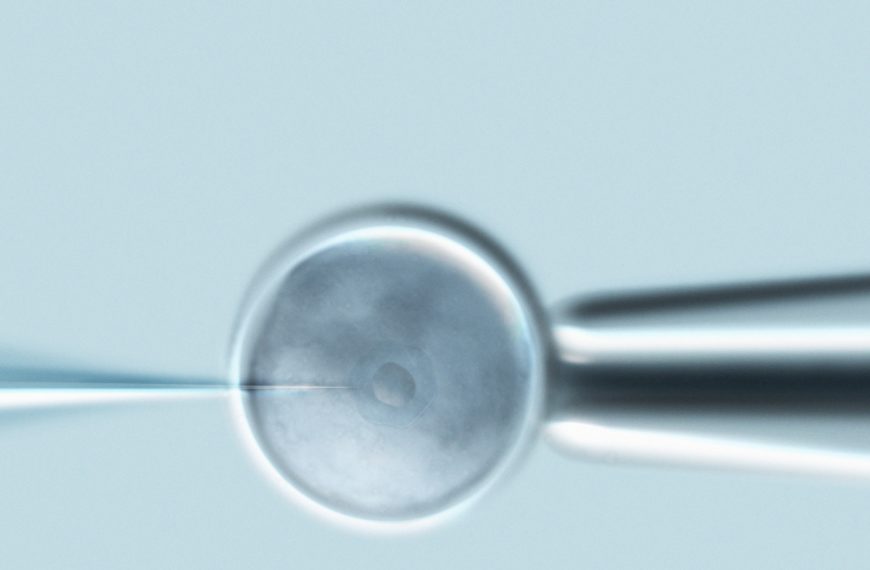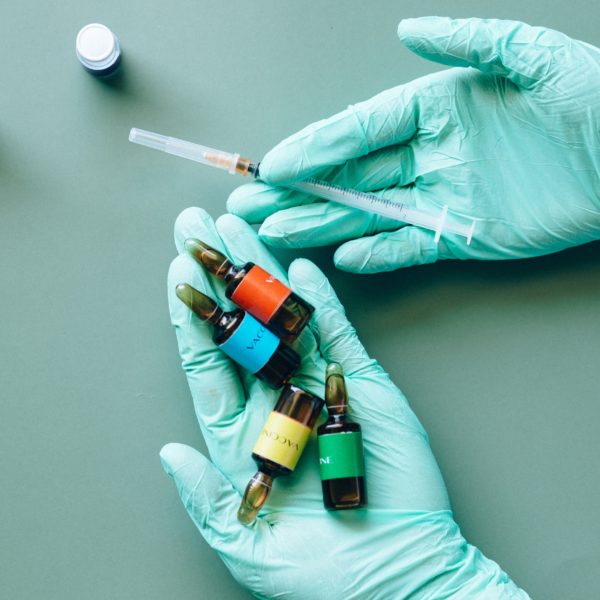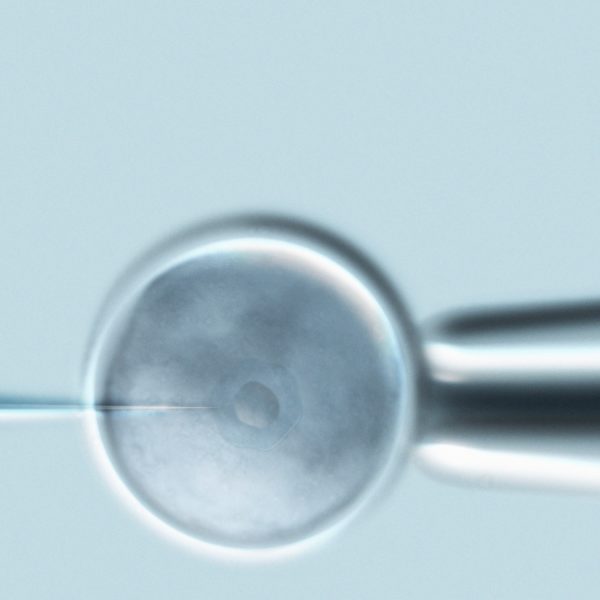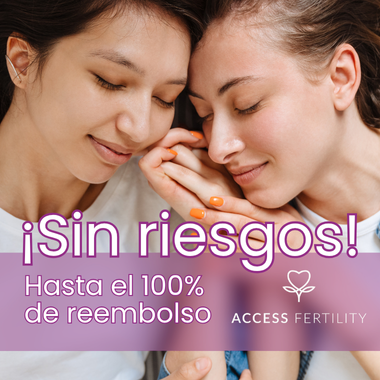In vitro fertilisation (IVF) is an advanced assisted reproduction technique used in fertility clinics to help couples or single women who are having difficulty conceiving. This procedure is one of the most effective and complex treatments in the field of fertility.
Table of contents
1. What is in vitro fertilisation (IVF)?
In vitro fertilisation (IVF) is an advanced fertility treatment that involves removing eggs from a woman’s ovaries through a procedure known as follicular puncture. Once obtained, the eggs are fertilised in the laboratory with the man’s sperm (or a donor’s if necessary).
After fertilisation, the embryos are observed in the laboratory and then transferred to the woman’s uterus in an attempt to achieve pregnancy. There are two types of IVF depending on the technique used for fertilisation:
- Conventional IVF: The eggs and sperm are placed in the same culture dish to fertilise naturally.
- ICSI (intracytoplasmic sperm injection): A single sperm is inserted directly into the egg using a microinjection.
2. Difference between IVF and artificial insemination (AI)
Artificial insemination (AI) is a simpler assisted reproduction technique compared to IVF. In AI, semen is placed in the woman’s uterus, allowing fertilisation to occur naturally. IVF, on the other hand, is more invasive and requires surgery (follicular puncture) to extract the eggs.
IVF has a higher chance of success than AI, as fertilisation takes place in the laboratory under controlled conditions, which increases the chances of pregnancy.
3. When is IVF necessary?
IVF is recommended in cases of both male and female infertility. The main causes that may lead to IVF being considered are detailed below.
3.1 Male infertility
- Oligozoospermia: Low sperm concentration.
- Asthenozoospermia: Reduced sperm motility.
- Teratozoospermia: Defects in the shape of the sperm.
- Criptozoospermia: Very low presence of sperm in the semen.
- Oligoasthenozoospermia: Combination of sperm abnormalities.
3.2 Female infertility
IVF is useful in cases such as:
- Tubal factor: Obstruction or damage to the fallopian tubes.
- Endometriosis: Presence of endometrial tissue outside the uterus.
- Low ovarian reserve: Low chances of obtaining mature eggs.
- Advanced age: The quality of eggs decreases with age.
- Previous failures with AI: When other treatments have been unsuccessful.
4. Requirements for IVF
4.1 Requirements for women
- Ovulation capacity: The woman must be able to produce viable eggs.
- Uterine abnormalities: The patient must not have any problems that prevent embryo implantation.
- Ovarian reserve: If the ovarian reserve is low, IVF with donated eggs may be an option.
4.2 Requirements for men
- Semen quality: Depending on semen quality, conventional IVF or ICSI may be chosen (in cases of severe sperm motility or concentration problems).
5. How is in vitro fertilisation carried out?
The IVF process consists of several stages:
- Ovarian stimulation: Hormones are administered to stimulate egg production.
- Ovarian puncture: The eggs are extracted from the ovary through a surgical procedure.
- Semen collection and preparation: The semen is processed to select the highest quality sperm.
- Fertilisation: The eggs and sperm are fused in the laboratory (conventional IVF or ICSI).
- Embryo culture: Embryo development is observed in the laboratory.
- Endometrial preparation: The uterus is prepared for implantation.
- Embryo transfer: The embryos are transferred to the woman’s uterus.
- Pregnancy test: A pregnancy test is performed after the transfer to verify whether the process has been successful.
6. Results and chances of success
IVF success rates depend on several factors, mainly the woman’s age:
- Under 35: 40%
- 35 to 37: 27-36%
- 38 to 40: 20-26%
- Over 40: 10-13%
At Rainbow Fertility, we have above-average success rates thanks to our medical team and personalised protocols. Check out our success rates here.
7. Advantages and disadvantages of IVF
7.1 What are the benefits of IVF?
- High success rates, especially for severe cases of infertility.
- Allows the use of donor eggs and sperm.
- Suitable for older women or women with low ovarian reserve.
7.2 What are the disadvantages of IVF?
- Requires surgical intervention to extract the eggs.
- The price is higher compared to other techniques.
- Side effects of hormone medication, such as mood swings and abdominal bloating, are possible.
8. Possible associated risks
- Ovarian hyperstimulation syndrome (OHSS): Excessive response to hormone medication.
- Multiple pregnancy: Higher risk if multiple embryos are transferred.
- Spontaneous miscarriage: About 20% of IVF pregnancies end in miscarriage.
- Ectopic pregnancy: May occur in 2-5% of cases.
9. Cost of IVF
The cost of IVF varies between £3,500 and £5,500, depending on the clinic and additional treatments, such as hormone medication. This usually costs between £1,000 and £1,200, depending on the protocol.
👉 At Rainbow Fertility Barcelona, we offer transparent prices and tailored financing. Check here for the complete price list for all our treatments
10. Informative video about IVF
Dr Gorka Barrenetxea, a specialist in assisted reproduction, provides detailed information about the IVF process in this exclusive video.
11. Frequently asked questions
What happens if I don't get pregnant the first time after IVF?
Sometimes more than one IVF cycle is necessary. Frozen embryos from a previous cycle can be transferred in a later cycle.
What negative effects can IVF medication have?
Common side effects include nausea, vomiting, and abdominal pain.
Does pregnancy through IVF require special care?
No special care is required, but the risks may be higher if the woman has a previous medical history or is elderly.
Do you have any questions?
At Rainbow Fertility, we specialise in treatments such as egg donation, in vitro fertilisation and artificial insemination, among others.
12. Authors and contributors
This article was written by the fertility medical team at RainbowFertilityBarcelona.com, which is made up of gynaecologists, embryologists and assisted reproduction specialists
.
Do you have any questions or need more information?
Schedule a consultation with us at Rainbow Fertility and discover how we can help you. At Rainbow Fertility, we specialise in treatments such as egg donation, in vitro fertilisation and artificial insemination, among others.
Please do not hesitate to contact our professionals at our fertility clinic and they will answer all your questions without obligation.
🌈 Are you ready to take the first step?
At Rainbow Fertility, we accompany you throughout the process with empathy, experience and medical commitment.
Schedule your appointment with us and start your journey towards fertility.


